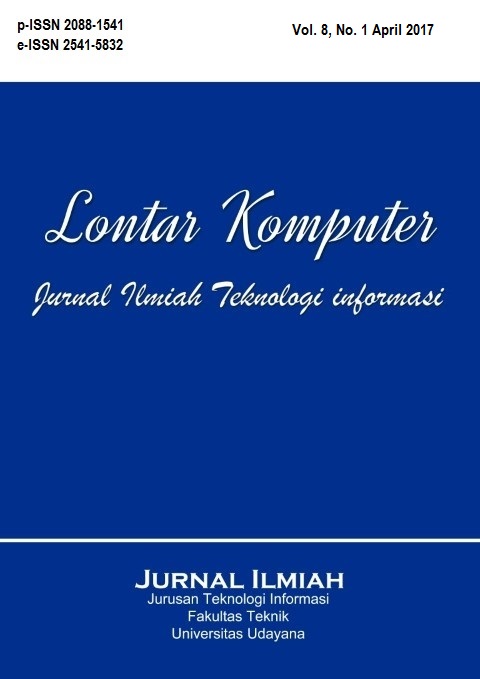Perencanaan Search Engine E-commerce dengan Metode Latent Semantic Indexing Berbasis Multiplatform
Abstract
E-commerce is a sale and purchase transactions that occur through electronic systems such as the Internet, WWW, or other computer networks. E-commerce involves electronic data interchange and automated data collection systems. In all e-commerce search engine provided a column for the search items desired by the user. In e-commerce such as Tokopedia, Lazada, MatahariMall, Amazon, and other search engines that provided just use a regular search engine technology. In the usual search engines getting longer sentences from the input or output of goods search results will be more extensive and more. However, by utilizing the semantic indexing technology, the longer and clear input desired goods, the number of searches will be few and accurately in accordance with the input that helps the user in decision making. In this study discussed how to build a search engine on the web e-commerce by using Latent Semantic Indexing. The first starts from the use of Text Mining methods for word processing, and the method Levenshtein Distance to repair automatic word and the last Latent Semantic Indexing for information processing and input expenditure.
Downloads
References
[2] B. VijayaLakshmi, A. GauthamiLatha, Y. Srinivas, and K. Rajesh, “Perspectives of Semantic Web in E-Commerce,” International Journal of Computer Application, vol. 25, no. 10, pp. 52–56, 2011.
[3] S. Kaur and P. Kiranjyoti, “Mining Text using Levenshtein Distance in Hierarchical Clusteing,” vol. 2, no. 1, pp. 92–97, 2015.
[4] M. Rott and P. Cerva, “Investigation of Latent Semantic Analysis for Clustering of Czech News Articles,” in Database and Expert Systems Applications (DEXA), 2014.
[5] P. Smutný, “Mobile Development Tools and Cross-Platform Solutions,” in Proceedings of the 2012 13th International Carpathian Control Conference, ICCC 2012, 2012.
[6] T. Arh and B. J. Blažič, “A Case Study of Usability Testing - the SUMI Evaluation Approach of the EducaNext Portal,” WSEAS Trans. Inf. Sci. Appl., 2008.
[7] Hamidah, “Pengembangan Situs PTN Menggunakan Usability Engineering dan Evaluasi Usability dengan Koesioner SUMI,” p. 29, 2013.
[8] S. A. Alvarez, “An Exact Analytical Relation Among Recall, Precision, and Classification Accuracy in Information Retrieval.’Boston College,” Boston, Tech. Rep. BCCS-02-01, 2002.
Keywords
The Authors submitting a manuscript do so on the understanding that if accepted for publication, the copyright of the article shall be assigned to Jurnal Lontar Komputer as the publisher of the journal. Copyright encompasses exclusive rights to reproduce and deliver the article in all forms and media, as well as translations. The reproduction of any part of this journal (printed or online) will be allowed only with written permission from Jurnal Lontar Komputer. The Editorial Board of Jurnal Lontar Komputer makes every effort to ensure that no wrong or misleading data, opinions, or statements be published in the journal.
 This work is licensed under a Creative Commons Attribution 4.0 International License.
This work is licensed under a Creative Commons Attribution 4.0 International License.























